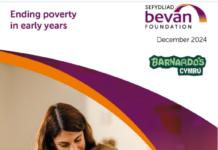Latest figures showing nearly 45,000 hospital operations to remove rotten teeth in children and teenagers – equating to 177 a day – have led councils to warn of a potential post-coronavirus surge of dental treatments following the lifting of lockdown.
The Local Government Association, which represents councils, says the stark numbers highlight the dangers of too much sugary food and drink in youngsters’ diets, as well as poor oral hygiene, which is likely to have worsened during the last few months, while children and teenagers have been stuck indoors.
There were 44,685 extractions of multiple teeth in under-18s in England in 2018/19 at a cost of £41.5 million, according to latest NHS spending data. This is equal to 177 per working day, an increase of 17 per cent compared to the 38,208 extractions in 2012/13, which cost £27.4 million
The vast majority of these extractions are due to tooth decay. The severity of the tooth decay means that the treatment has to be undertaken in a hospital under general anaesthetic, rather than a dentist. Councils, which have responsibility for public health, are now concerned that some children and young people who have been at home for months during lockdown could be risking their oral health by snacking on sugary food and drink.
Early years settings including nurseries and schools closures have also led to the loss of supervised brushing time and fewer opportunities to educate young children and parents about good oral health. Councils, schools and other educational settings are keen to restart supervised brushing schemes and scale up their oral health work, to avoid an increase in tooth decay and extractions, but need the additional funding and capacity to help do so.
Previous public health research has revealed about one in four (23 per cent) of five-year-olds in 2019 have had dental decay, while children from more deprived areas (34 per cent) are more than twice as likely to have dental decay compared to those from less deprived areas (14 per cent).
Meanwhile seven in ten families (70 per cent) with children under five are also reporting more snacking in the household during the lockdown, more than double compared with those who are not living with children, with snacking also risen among families with younger children.
The LGA is calling for councils’ prevention efforts to be fully funded to help keep children’s teeth healthy, including reversing a reduction of more than £700 million in the public health grant to councils between 2015/16 and 2019/20. The public health grant to councils should also be increased to at least £3.9 billion a year by 2024/25, so it matches the growth in overall NHS funding, as part of the NHS Long-Term Plan.
Cllr Ian Hudspeth, Chairman of the LGA’s Community Wellbeing Board, said: “These latest figures demonstrate the damage which can be done to young people’s teeth through too much sugar intake.
“The fact that, due to the severity of the decay, 177 operations a day to remove multiple teeth in children and teenagers have to be done in a hospital is concerning and also adds to current pressures on the NHS.
“We need to do all we can to reduce how much sugar our children eat and drink, including investing in oral health education so that everyone understands the impact of sugar on teeth and the importance of a good oral hygiene regime.
“Untreated dental care remains one of the most prevalent diseases affecting children and young people’s ability to speak, eat, play and socialise.”
Help keep news FREE for our readers
Supporting your local community newspaper/online news outlet is crucial now more than ever. If you believe in independent journalism, then consider making a valuable contribution by making a one-time or monthly donation. We operate in rural areas where providing unbiased news can be challenging. Read More About Supporting The West Wales Chronicle
























